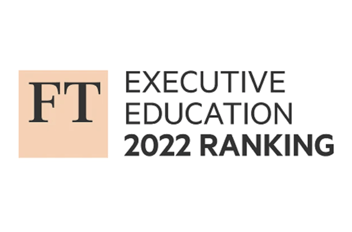For a lot of people, formal education has in the past started with primary school and ended with undergraduate education. However, educating oneself beyond the early phases of life and career has become more and more important. Why is lifelong learning so important?
Trends such as an aging population and a changing world of work influence both the duration of our careers and how our careers will look in the future. Professionals who dedicate themselves to updating their knowledge and learning new skills tend to earn more and their versatile skillset makes it easier for them to change jobs, progress in their careers, and adapt to economic downturns. Research has also proven that lifelong learning makes people healthier and happier.
Investment in education is an economic imperative
The links between formal education and lifetime earnings are well-studied and substantial. In 2015, a study by Christopher Tamborini, ChangHwan Kim, and Arthur Sakamoto confirmed the persistent positive effects of higher education on earnings across the different stages of career and lifetime. In the US, women and men with a postgraduate degree can expect to earn between $430,000 and $620,000 more during their careers compared to those with only an undergraduate degree. A similar trend has been recorded in Finland, based on information from Statistics Finland.

Ongoing learning and skill development not only lead to greater financial gain but also allow professionals to stay relevant in their careers, progress on their career paths and even change their careers. Factors such as technological disruption have led to a rapidly changing professional landscape. Navigating this ever-changing landscape requires both continuous learning and personal growth.1
Learning is positive for health
Lifelong learning makes people healthier and more fulfilled in general. Experts have proven that studying longer keeps the mind sharp and improves mental and psychological health. A study by Cathie Hammond confirms that education can enhance all health outcomes by enabling individuals to see their lives from a broader perspective. Her work demonstrates that having a broader context allows individuals to develop new interests, provides them with new opportunities and thereby generates purpose, hope, self-esteem and personal growth.
1 David Pendleton, Peter Derbyshire and Chloe Hodgkinson (2021): Work-Life Matters, Palgrave Macmillan



